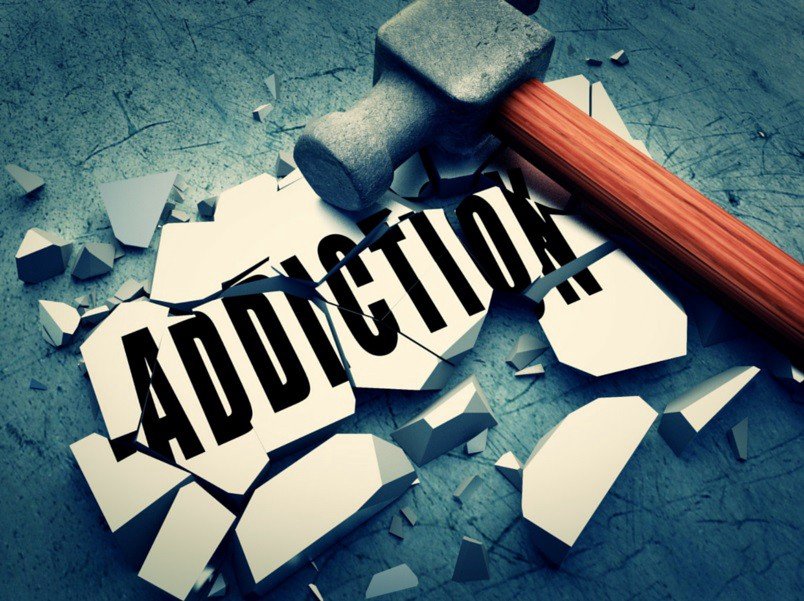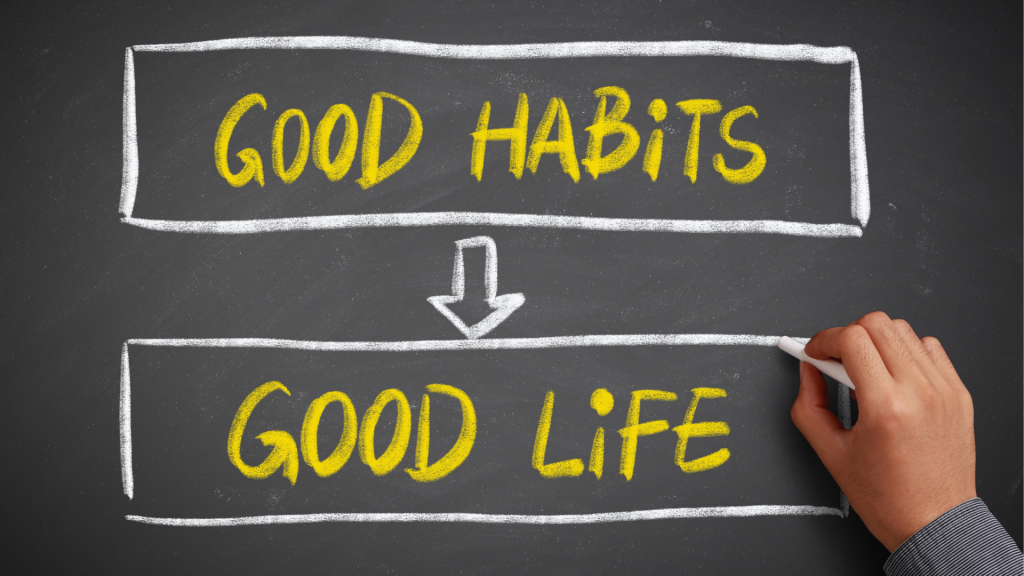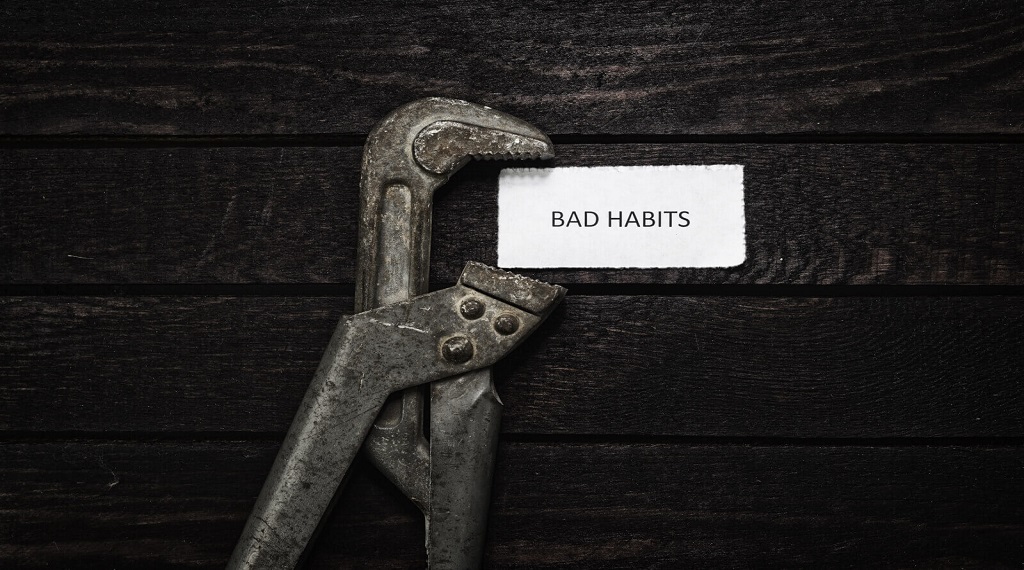Today, we will discuss an enemy within almost all of us, irrespective of age, gender, sex, or nationality. In today’s article, we will reflect upon how to stop bad habits and addictions. Some habits are within us; we know they are not good, we know at the end of the day they are harming us, and still, we cannot shake them off. Today, we will talk about how to stop bad habits and quit an addiction.
Are all Addictions bad?
First of all, we need to remember that all addictions are not bad habits. If someone is addicted to music or reading, we cannot consider it a bad habit, but if someone is addicted to alcohol or smoking, it definitely is. Before labeling an addiction harmful, we need to consider if that habit is harming us or not.
Difference Between Habit & Addiction
Initially, we need to be clear about habit & addiction. Both are not the same. A habit can be termed as a routine or regular behavior that gets harder to give up the longer that behavior goes on. Addictions, on the other hand, are much more powerful than habits.
In these cases, for the most part, people will make sacrifices in their lives out of a compulsion to pursue a substance or practice. Of course, we are talking about harmful addictions here, like addictions to drugs, alcohol, marijuana, or any form of addictive substance.
How To Quit An Addiction

Quitting an addiction is tough, but not impossible. It can be done by following these steps.
1. Make a decision to change
The firm decision to change is the most crucial step to stop bad habits or quit an addiction. By accepting that a change is needed, you admit that there is a problem & it needs to be taken care of. Making a decision to change is a progression that often takes time. This phase is known as the contemplation stage because it entails thinking about whether to change and how.
Bigger goals are not always the best. It is important to set a simple, achievable goal. It has happened when someone is trying to quit an addiction by stopping a bad habit abruptly & then relapsing. It is more dangerous than continuing without change. Therefore, one needs to think carefully & should make a decision to change for good.
2. Prepare Yourself
Once you have made a decision, you need to prepare yourself for the change. It can be done by removing things you are addicted to from your home and trying to avoid the triggers that can make you go back to those things. You can also try to change your routine to avoid people or places that trigger cravings.
3. Look for Social Support
Possibly the hardest preparations to make concern social relationships. For people having addictions, some of their relationships may circle around addictive behaviors. In those cases, establishing boundaries in those relationships and joining a support group of people who understand their struggles may be very beneficial.
4. Don’t get Lonely
For someone who is trying to quit an addiction, loneliness is quite a challenge. Maybe he/she has lost touch with old friends/family. Maybe it is difficult for him/her to be around people who are still addicted to the substance he/she is trying to quit. In this case, one must reach out to people who are willing & can help you to stop bad habits.
5. Seek Professional Advice
The issue of addiction is most of the time deeply rooted in our minds. As a result, no matter how hard we try, we cannot uproot the poison ivy from our minds. There are many professionals nowadays who treat & help people with addictions.
There are many clinics, counselors, and psychologists nearby who are willing to help us fight against addiction. If self-abstinence and self-control are not proving fruitful, it is always a good idea to seek professional advice to stop bad habits.
Steps To Develop Good Habits

We all are creatures of habit; therefore, developing a good habit is not very complex. You can do it in small and simple steps.
1. Find your Interest
Ask yourself what you enjoy most. Is it music? Or reading? Or painting? It can be anything; just keep in mind it should be something positive in nature. Whenever you feel like going back to the habit you are trying to quit, resort to your newfound interest and keep yourself busy.
This is one of the important steps to develop good habits. Suppose you are trying to quit smoking; suddenly you are feeling the urge to light one stick, sing a song in your brain, or sip a cup of tea. The most important thing is to stop that urge for five minutes. If you can stop yourself for the period, you are good to go.
2. Utilize ideas and confirmations
Ideas and confirmations are great for the assimilation of the new habit into your routine. Use it together to imagine you are carrying out the new habit in a productive & positive way. Developing good habits is easier when utilizing ideas and confirmations.
3. Seek Support from Family & Friends
Let your family, friends, and well-wishers know that you are trying to get rid of a certain bad habit & determined to do so. Ask for their support & encouragement so that you can do whatever may come. Explain to them why it is important to you & why it is an utmost significant step to develop a new positive habit. They will surely help you.
4. Reward yourself
We develop bad habits because they feel good, even if only temporarily. If you have successfully gotten rid of it, reward yourself with things you enjoy. Enjoy a tasty, healthy snack, and go to a movie or concert. If you are short on cash, go for a walk to your favorite place. Ask your friends to come over to chat over a cup of coffee. Do things that remind you that you have done well.
Read More: 9 Habits of Happy People
Conclusion
Bad habits are hard to stop; however, there is a part of our mind that urges us to overcome these bad habits. If we know that this habit is more harmful than helpful, we must stop it for our own and our loved ones’ sake. We can take small but effective steps to develop positive habits. By doing so, we can have a more rewarding & healthy life.











